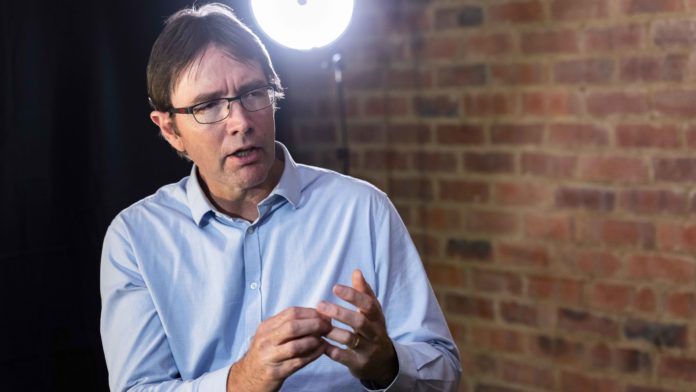
The mining industry has upped the estimate on the generating capacity of the renewable energy projects it could build to 3,900MW from the initial estimate of 1,600MW made in 2020.
That amount of power would almost meet the bottom end of the range of 4,000MW to 6,000MW that Eskom CEO Andre de Ruyter told a Parliamentary Portfolio Committee on November 17 that Eskom needs to add to its generating capacity to “conduct an effective and sustainable reliability maintenance programme that will not disrupt national electricity supply.”
Building all those projects would cost some R60bn but, according to Minerals Council CEO Roger Baxter, a string of constraints have to be dealt with before the mining industry sets about “approving and building their own renewable energy projects.”
In a statement released today Baxter said those constraints included the 18 month environmental impact assessment requirements; the lack of clarity around the use of Eskom’s transmission to wheel or send power from these plants to their mines; the sale of excess power into the national grid and the limited capacity of transmission lines from provinces like the Northern Cape , Western Cape and Eastern Cape to supply inland provinces.
Baxter said the steps to be taken that would speed up the mining industry’s development of these renewable energy projects included: the provision of emergency tax incentives such as a s37E income tax write-off equivalent; shortening environmental authorisation and Eskom-related grid-tie connection processes; providing a clearer frame-work of wheeling on the national grid and ensuring a shortened smart tape process.
“Wheeling” refers to the charges made by Eskom to allow other power generators to use its transmission system.
Baxter also sounded a warning over the growing antagonism in some quarters to De Ruyter which has risen particularly since the latest round of load-shedding.
He commented, “the Minerals Council re-iterates its support for Eskom CEO Andre de Ruyter and the leadership team who are doing all the right things to fix and maintain Eskom’s assets. Their departure at this critical stage will only exacerbate the problems within Eskom and for the country at a time we can least afford any further setbacks in efforts to restore and stabilise electricity supply.”
Baxter said the licence-free concession for embedded generation of up to 100MW was a major factor in the mining industry’s revised generation estimates and this was “probably the government’s biggest structural reform in two decades.”
Baxter pointed out all these mining industry power projects “could go a long way towards easing the pressure on Eskom to the benefit of other industries and the country as a whole.”
But he added, “these projects must be expedited through a smart tape system. Environmental authorisations take too long and should be materially shortened. In addition, policy issues related to wheeling charges and surplus offtake to other users are required.”











